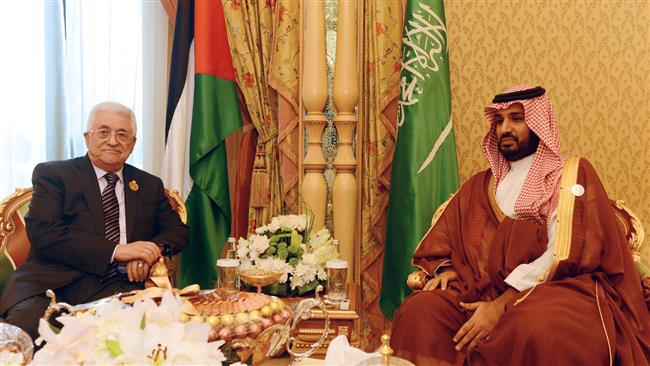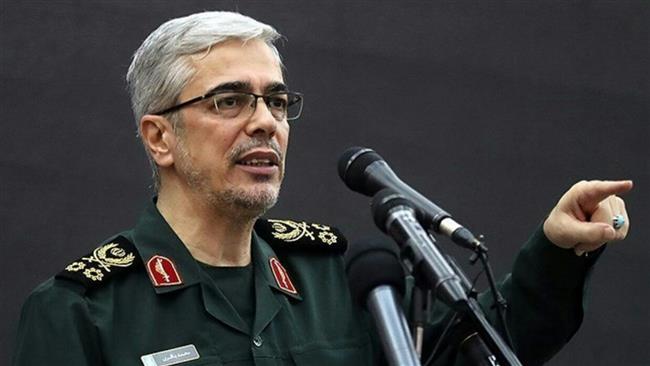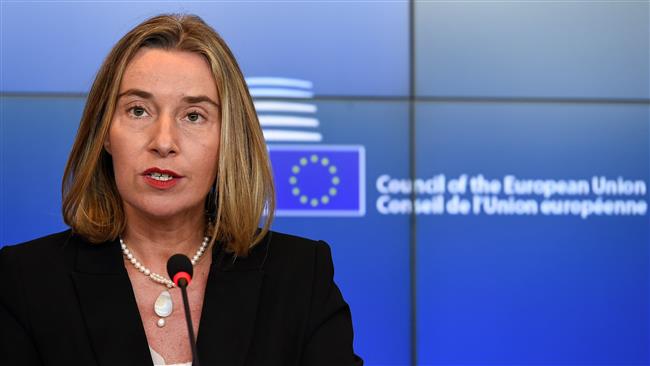Riyadh advancing Israeli interests, Palestinian officials worry
Palestinian officials have expressed worry that Saudi Arabia is forgoing important Palestinian rights as it acts behind the scenes to advance a United States “grand bargain” over the Israeli-Palestinian conflict that heavily favors Israel.
Four Palestinian officials told Reuters on condition of anonymity on Friday that Saudi Crown Prince Mohammad bin Salman had communicated a proposal to Palestinian President Mahmoud Abbas that would give away the right of return for Palestinian refugees and the status of Jerusalem al-Quds as the capital of a future Palestinian state in return for conditions unfavorable to Palestinians, Reuters reported on Friday.
That proposal has reportedly been shaped by Jared Kushner, US President Donald Trump’s son-in-law and “senior adviser,” who has developed a close relationship with Mohammed bin Salman.
The Palestinian officials expressed concern that the proposal is too much in line with Israeli interests and to the disadvantage of Palestinians, whose land Israel has occupied.
Trump on Wednesday declared that the US was recognizing Jerusalem al-Quds as the “capital” of Israel and had instructed his administration to begin the process of moving the American embassy from Tel Aviv to the ancient city.
Trump’s controversial move sparked a wave of condemnations from the international community and warnings of further inflammation of the tensions in the occupied territories. It also led to violent clashes between Palestinian protesters and Israeli forces in the Gaza Strip and the West Bank.
But that declaration was welcomed by Israel, which claims sovereignty over the whole Jerusalem al-Quds. This is while the international community views East Jerusalem as occupied land and the Palestinians want it as the capital of a future Palestinian state.
The Palestinian officials told Reuters they feared that by the Quds announcement, Trump would align with Israel in offering the Palestinians limited self-government inside disconnected West Bank patches, with no right of return for the displaced population.
According to one of the Palestinian officials, the US proposal that bin Salman communicated to Abbas included establishing “a Palestinian entity” in Gaza as well as the West Bank administrative areas A and B and 10 percent of area C.
Under the plan, however, Israeli settlements would stay in the occupied West Bank, the Palestinian refugees would not be able to return to their homeland, and the Tel Aviv regime would maintain control over borders, the source added.
Another Palestinian official said bin Salman had asked Abbas to back the US initiative when the two met in the Saudi capital, Riyadh, last month.
“President Trump in a phone call told Abu Mazen (Abbas): ‘I will have some proposals for you that you would like.’ When Abu Mazen pressed him on details, Trump didn’t give any,” the source said.
A third Palestinian official said the Saudi crown prince had told Abbas, “Be patient, you will hear good news. This peace process will go ahead.”
Meanwhile, an unnamed Saudi source predicted that an understanding on the so-called Israeli-Palestinian peace would emerge in the coming weeks.
Jordanian political analyst Oraib Rantawi warned of “direct dealings and a desire to present a deal that is unfair to the Palestinians in return for securing US backing and paving the way for [Persian] Gulf-Israeli cooperation to confront Iran.”
Kushner in the spotlight
Kushner has recently been increasingly engaging Saudi Arabia. Trump has put his son-in-law in charge of the Middle East portfolio, an appointment that has drawn criticism — including from some Israeli-Americans, who question Kushner’s capabilities or knowledge of diplomacy or politics.
In a rare public appearance last week, Kushner was grilled by Israeli-American billionaire Haim Saban.
“How do you operate with people who basically, with all due respect, a bunch of Orthodox Jews who have no idea about anything?” Saban told Kushner. “What are you guys doing? Seriously, I don’t understand this.”
What are Saudi Arabia’s motives?
Shadi Hamid, senior fellow at the Washington-based Brookings Institution, questioned Saudi motives in an article in The Atlantic magazine.
“If Saudi officials, including the crown prince himself, were particularly concerned with Jerusalem’s status, they would presumably have used their privileged status as a top Trump ally and lobbied the administration to hold off on such a needlessly toxic move,” he wrote.
Saudi Arabia’s maneuvering over Palestine comes amid increasing reports that the Riyadh regime is preparing a normalization of ties with Israel. In November, Lebanon’s al-Akhbar daily published a secret undated letter from Saudi Foreign Minister Adel al-Jubeir to bin Salman that laid out a number of conditions in exchange for normalizing ties with Israel.
One of the conditions was that the Saudis would contribute to the resolution of the decades-long Israeli-Palestinian conflict by proposing the resettling of Palestinian refugees in their host countries rather than their return to their homeland.
Saudi Arabia has also cultivated seemingly better relations with the administration of Trump, a former businessman, by purchasing billions of dollars’ worth of American arms.
Israeli strikes on north Gaza hospital ‘extremely dangerous, terrifying’: Director
VIDEO | Yemen targets Tel Aviv with Palestine 2 missiles
Pezeshkian: Iran resolved to complete North-South Transport Corridor
VIDEO | Iran-Syria: For Resistance
Qassam Brigades claims killing 3 Israeli troops in northern Gaza
More alive than ever: Sayyed Hassan Nasrallah's legacy grows stronger in martyrdom
Occupation of Syria’s highest peak Mount Hermon part of ‘Greater Israel’ project
Iran: Syrian people will decide their future without foreign interference

















 This makes it easy to access the Press TV website
This makes it easy to access the Press TV website